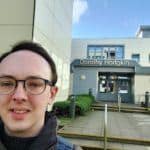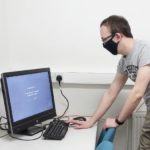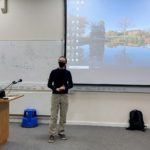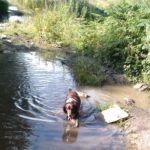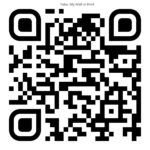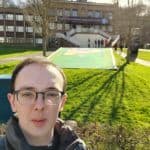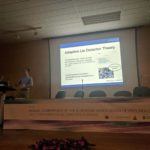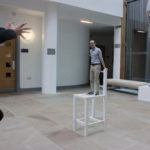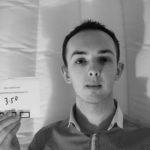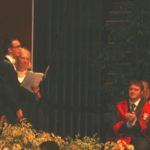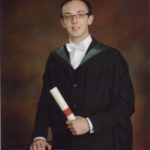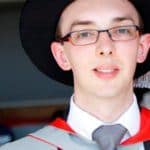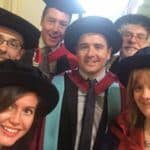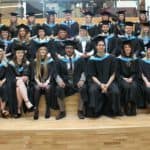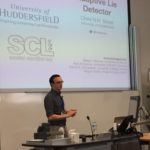Profile
Chris Street
-
About Me:
I’m a psychology lecturer working at Keele University. I’m originally from the valleys in South Wales, 1st generation student, and I am a board game geek.
I am also on strike to achieve equal pay regardless of sex, disability or race. If I go silent for long periods, it is because I am on the picket line fighting for equal rights!
🏳️🌈
-
Read more
I’m from the Rhondda Fach originally, which is a small valley in Wales once famous for its coal mining, and still holds some fame through the TV show The Valleys, the hymn Cwm Rhondda (which you may know as Bread of Heaven), its cycling trails, and more. I was a pupil at Ferndale Community School.
Board gaming is a surprisingly active hobby. They are sometimes called designer board games and modern board games, if you wanted to run an internet search on it. There are thousands of new board games published each year! My personal collection (pictures below) has around 130 board games at this point, but it’s still growing…
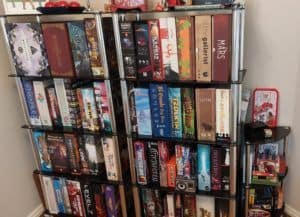
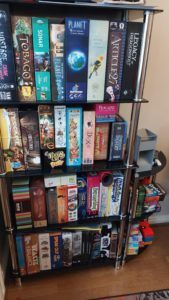
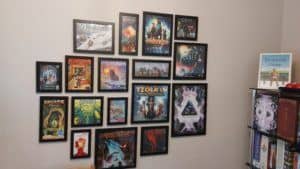
-
Read more
Here’s a statement: “I studied for my doctorate at UCL”. Do you think this is a lie or a truth? Maybe you think it’s a lie: you read elsewhere that I am from South Wales, so maybe it’s likely that I would have studied there. Or maybe you think this is the truth because, let’s face it, why would I bother lying seeing as there is nothing at stake?
How we make the decision to judge if someone is lying or telling the truth is what I am interested in. It turns out that people tend to guess that others are telling the truth instead of thinking that maybe they are lying. Why do we guess truth more often than lie? This has been the question at the core of my research for the past 13 years.
That’s a long time to try to answer one question, I grant you! But here’s the thing: answering a question takes months to obtain the data and analyse it, more time for replications of the study in the same and other labs, time to write and publish, and there are many possible explanations to explore. For example, do we guess others are telling the truth because it’s a social nicety to be polite? Or is it because of the way that we understand how language works? Is there a built-in error in our minds? Or, as I’m arguing, might this tendency to guess others are telling the truth actually be showing us that people are making smart and informed judgements? That might sound surprising: How can we be being smart if we are believing people who might be lying to us? But that’s the fun part of science: this sort of creative thinking can lead to big breakthroughs.
You might be wondering at this point: “why do you care about this? Isn’t lie detection just a party trick at best?” Making the lie-truth judgement is critical to understanding issues such as:
- Why do we believe fraudulent text messages and emails are genuine?
- Why do social care workers believe parents who say they are not harming their child when actually the child is being harmed?
- What leads us to trust politicians and others in positions of power, and what happens when they abuse this position and deceive us?
- Should negotiation offers be trusted as genuine or are they hiding their real offer?
And much more. This decision feeds into so many parts of our lives. And by understanding the theory of how people make the judgement, we are in a position to begin to understand how we can change it.
-
My Typical Day:
After a shower I’ll have a slice of sourdough bread and a cup of tea. Sourdough: unbeatable. If I’m working at home, I’ll make a flask of tea for the day and will be reading about other people’s research or writing about my own as well as chatting with my students about their studies. If I’m in the lab, I’ll be walking participants through our studies.
-
Read more
I get to work around 9am, which sometimes means working from my home office and sometimes from my desk. On a given day, I will have students that I am directly supervising needing some guidance. I am running a few experiments at the moment, which means bringing people into the lab and getting them to complete tasks. But research also means writing reports and reading about the research that other people are conducting. I try to switch off at 5pm if I can, but things crop up and so I might have to work longer to manage them.
The work is very varied, so it’s very tricky to answer this question!
-
What I'd do with the prize money:
One thing I’ve wanted to do for more than 10 years now is to go back to the valley that I grew up in and show the pupils there that science is not boring or difficult. It can make you passionate about something, and it’s actually a very creative process. I would want to use the money to host an event back home for school pupils in the local area that highlights the fun and creativity in science through demonstrations and exhibitions.
-
Education:
- Sixth Form: Ferndale Community School and Coleg Morgannwg, South Wales
- Undergraduate: Psychology, University of Dundee, Scotland
- PhD (the one that gives me the title of Dr): Cognitive Psychology, University College London (UCL), England
- Postdoctoral Fellowship (a job that is purely research): Cognitive Psychology, University of British Columbia, Vancouver Canada
- Lecturer/Senior Lecturer/Reader (these roles involve research, teaching amd admin): University of Huddersfield, England
- Senior Lecturer: Keele University, England
-
Qualifications:
- 10 GCSEs. Optional subjects, if my memory serves: Welsh, ICT, Economics (and I suspect two more but it’s been a while!)
- 3 A-Levels. Economics, ICT and Psychology (two Bs and a C, I think, but don’t remember which was which!). And here’s my dirty little secret: I also did an AS in Physics (for which we had no teacher!) and Sociology, but performed so poorly that I dropped them (both Es). Trust me, no one gets to my position without having experienced failure on the way
- MA Psychology (Hons) from University of Dundee, 1st Class (that’s the highest grade).
- PhD Cognitive Psychology from University College London (UCL) (these aren’t graded: either you pass or fail)
- PgCert Higher Education from University of Huddersfield (a degree to qualify me as a teacher)
- Chartered Manager from the CMI institute (a chartership showing I have studied how to manage people in a work context)
-
Work History:
- Age 15-16: Working at a local shop stacking shelves
- Age 16: A few months working as a silver service waiter at a hotel
- Age 19: Night-club bar tender (this was short lived: one week into the job I was accused of stealing and quit on the spot)
- Age 28-29: Postdoctoral fellow at University of British Columbia, Vancouver
- Age 29-35: Lecturer (and promotions) at University of Huddersfield
-
Current Job:
Senior Lecturer in Cognitive Psychology
-
My Interview
-
How would you describe yourself in 3 words?
Valleys deception scientist
What did you want to be after you left school?
Honestly, I didn't know. I just knew I wanted to move somewhere new and to study
Were you ever in trouble at school?
A few times, including a student protest and list of demands! Plus my attendance was around the 65% mark. But I suppose I was relatively tame at school
Who is your favourite singer or band?
I think I have to say that I don't have one. But I like my 80s and folk music. Bob Dylan is bit of a winner. But I also jump from Iron Maiden to Tchaikovsky to Britney Spears. I'm all over the place.
What's your favourite food?
Haha, well someone in school suggested I try a tuna sandwich with mayo and vinegar. It sounded awful. 20 years later I'm still eating them (I just had one 10 minutes ago!)
If you had 3 wishes for yourself what would they be? - be honest!
I have started a new relationship, so number 1 wish: for us to grow old together (I hope she doesn't see this!). The second would be for my friends and family back home to never have to worry about money. They are wonderful people and they deserve much more. I'd wish that for myself but I feel like I'm already there. The third? That my nieces and nephew will have a happy life. I guess these are fairly selfish!
Tell us a joke.
A man walks into a private doctor's surgery and says "I have a pain in my stomach but don't know what it is.". The doctor says "Go home, you're fine, I can see that from here". The patient asks for a second opinion. The doctor bring in a labrador, who sniffs the patient's stomach. The labrador says "Yeah the doc's right: go home, you're fine!". The patient is a bit startled at the talking dog, and isn't buying it. The doctor says "well alright, give me a second". The doctor comes back with a cat who looks the patient up and down with a serious stare. The cat says "yeah there's no problem, go home". The patient heads out and looks at the bill and is outraged. The doctor explains "Look, I gave you my evaluation, we ran a lab test and a cat scan, it all adds up!" (groan).
-

